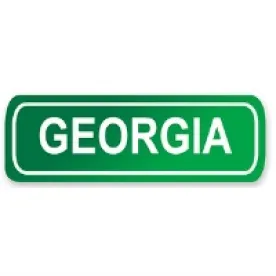On April 27, 2020, the U.S. Supreme Court ruled in a 5-4 decision authored by Chief Justice Roberts that copyright protection does not extend to the annotations in Georgia’s official annotated code. In the case, Georgia v. Public.Resource.Org, Inc. (No. 18-1150), the majority held that because “Georgia’s annotations are authored by an arm of the legislature in the course of its legislative duties, the government edicts doctrine puts them outside the reach of copyright protection” even though the annotations themselves do not have the force of law.[1]
The Official Code of Georgia Annotated (“OCGA”) includes the text of every current Georgia statute and a set of annotations that appear below each statutory provision. A division of LexisNexis Group produced the annotations under a work-made-for-hire agreement with the Georgia Code Revision Commission.[2] The work-made-for-hire agreement specified in exacting detail what the annotations must include, and provided that any copyright in the annotations vests in the State of Georgia, acting through the Commission.
Respondent Public.Resource.Org (“PRO”), a nonprofit dedicated to facilitating public access to government records and legal materials, posted the OCGA online and distributed copies to various organizations and individuals. The State of Georgia and the Commission sued PRO for copyright infringement, and PRO counterclaimed seeking a declaration that the entire OCGA, including the annotations, fell in the public domain. The United States District Court for the Northern District of Georgia ruled for the State of Georgia, holding that the annotations are eligible for copyright production because they do not have the force of law. The Court of Appeals for the Eleventh Circuit reversed, holding the annotations uncopyrightable under the government edicts doctrine.
The government edicts doctrine, developed out of a trio of 19th century cases, provides that works created by officials empowered to speak with the force of law in the course of their official duties cannot be protected by copyright. The U.S. Supreme Court granted certiorari to address whether explanatory legal materials are uncopyrightable under this doctrine.
The majority opinion, delivered by Chief Justice Roberts and joined by Justices Sotomayor, Kagan, Gorsuch, and Kavanaugh (a refreshingly unusual majority grouping), held that the annotations are not copyrightable under the government edicts doctrine because the state legislature effectively authored the annotations and the annotations were created in the discharge of legislative duties.
Justice Thomas, in a dissenting opinion joined by Justice Alito and joined in part by Justice Breyer, stated that “it must follow from our precedents that statutes and regulations cannot be copyrighted, but accompanying notes lacking legal force can be.”[3]
Justice Ginsburg also dissented, in an opinion joined by Justice Breyer,[4] stating that the annotations should be copyrightable because they were created not in a legislative capacity but rather “for the purpose of a convenience reference.”[5]
The majority opinion will be of interest to the various jurisdictions (and their licensees) who have arrangements similar to Georgia’s to produce annotated codes.[6] The decision also will be of interest to the industry groups that develop regulatory codes adopted and enforced by governmental entities, such as building codes and fire safety codes. See, e.g. Veeck v. Southern Bldg. Code Congress Int’l, Inc., 293 F.3d 791 (5th Cir. 2002) (en banc) (copyright protection no longer applies to model codes once enacted into law).
-
Slip Op. at 2.
-
Id. at 3 (“Under the agreement, Lexis enjoys the exclusive right to publish, distribute, and sell the OCGA. In exchange, Lexis has agreed to limit the price it may charge for the OCGA and to make an unannotated version of the statutory text available to the public online for free. A hard copy of the complete OCGA currently retails for $412.00.”)
-
Slip Op., J. Thomas (dissenting) at 4. Justices Thomas and Breyer appear to be continuing their sidebar on the role of stare decisis, as evidenced by Justice Breyer’s surgical exclusion of those sections of the Justice Thomas dissenting opinion.
-
More typically, on the opposite side of copyright decisions for Justice Ginsburg.
-
Slip Op., J. Ginsburg (dissenting) at 3.
-
Slip Op., J. Thomas (dissenting) at 1.






 />i
/>i

